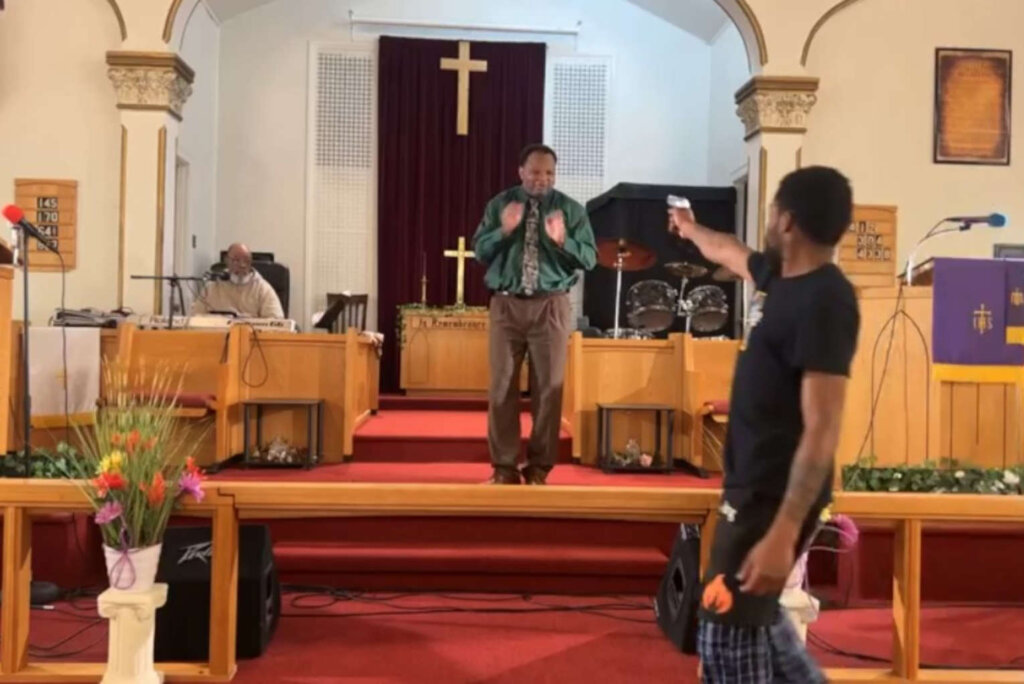Texas Governor Rick Perry on Thursday signed into law tough new restrictions on abortion, including a ban after 20 weeks of pregnancy, marking one of the biggest victories in a decade for opponents of abortion in the United States.
Perry, a Republican, signed the measure flanked by invited political supporters and anti-abortion activists, who gave him a standing ovation as he entered the room.
“It is a very happy and celebratory day,” said Perry, who thanked anti-abortion activists for helping to “support the health of Texas women.”
Outside, about two dozen protesters dressed in black shouted “Shame,” and “The blood of Texas women is on your hands!”
Texas Republicans, who have a large majority in the state legislature, pushed through the restrictions over the fierce objection of Democrats and supporters of the right to abortion.
Democratic state Senator Wendy Davis briefly caught national attention last month by staging a filibuster to stall the restrictions, although her gambit ultimately failed.
While several other conservative states have approved piecemeal abortion restrictions, Texas is by far the most populous and politically important, and it took more dramatic action by combining several measures into one bill.
The Texas measures are also more far reaching than a ban passed by the U.S. Congress in 2003 on a type of late-term abortion called “partial birth,” which covered only a small fraction of abortions performed each year.
Texas joins 12 other states which have passed bans on abortion after 20 weeks, citing disputed research that a fetus feels pain by that stage. North Dakota and Arkansas have gone further, banning abortion as early as six and 12 weeks respectively.
The current limit for abortions in Texas is 26 weeks.
Texas is also requiring all abortion facilities to meet the same standards as outpatient surgery centers by September 2014, and forcing doctors performing abortions to have the right to admit a patient to a hospital within 30 miles of a clinic.
The law will prohibit anyone other than a doctor dispensing the so-called “abortion pill,” or RU-486 drug, to end pregnancies, and require that a second dosage be administered at a clinic under a doctor’s supervision and not at home.
Texas already has a law passed two years ago requiring a woman to undergo an ultrasound and be shown the results, before an abortion can be performed.
Opponents of the new Texas law say it will be found unconstitutional because the landmark Roe v. Wade Supreme Court decision in 1973 allowed abortion up to the point a fetus is viable, or can live outside the womb.
Supporters of the Texas law say technology for treating premature babies has resulted in survival at earlier stages of gestation. They say that the government has a compelling right to protect the fetus as early as 20 weeks.
The Republican-led U.S. House of Representatives last month passed a ban on abortion after 20 weeks, although the measure has little chance of passage in the Democratic majority Senate.
Planned Parenthood and other operators of clinics have warned that only a handful of the 42 facilities in Texas providing abortions now meet the standards set in the new law, and the cost of upgrading could force dozens to close. Supporters of the law say that is an exaggeration.
Abortion rights activists have vowed to immediately challenge the Texas law in court.
“The fight over this law will move to the courts,” Cecile Richards, President of Planned Parenthood Action Fund, said in a statement after the signing. “People are enraged by this law.”
Some challenges of other state laws have been successful. A federal judge on Wednesday extended for two more weeks a hold on a Wisconsin provision requiring doctors performing an abortion have admitting privileges at a hospital, while the judge studies whether to block the law.
The U.S. Supreme Court has not ruled recently on an abortion case. In 2006 it narrowly endorsed, 5 to 4, the U.S. Congressional ban on “partial birth” abortions.
© 2013 Thomson Reuters. All rights reserved.
See an error in this article?
To contact us or to submit an article























